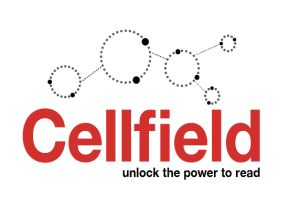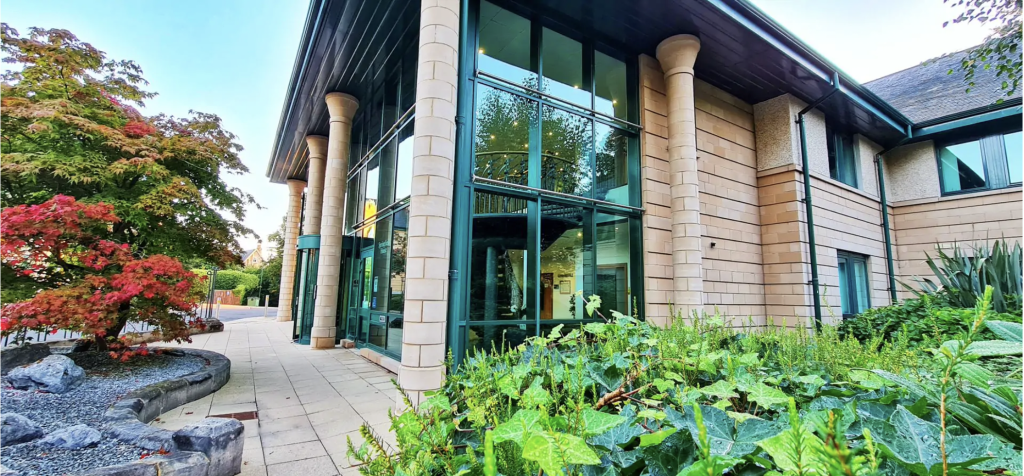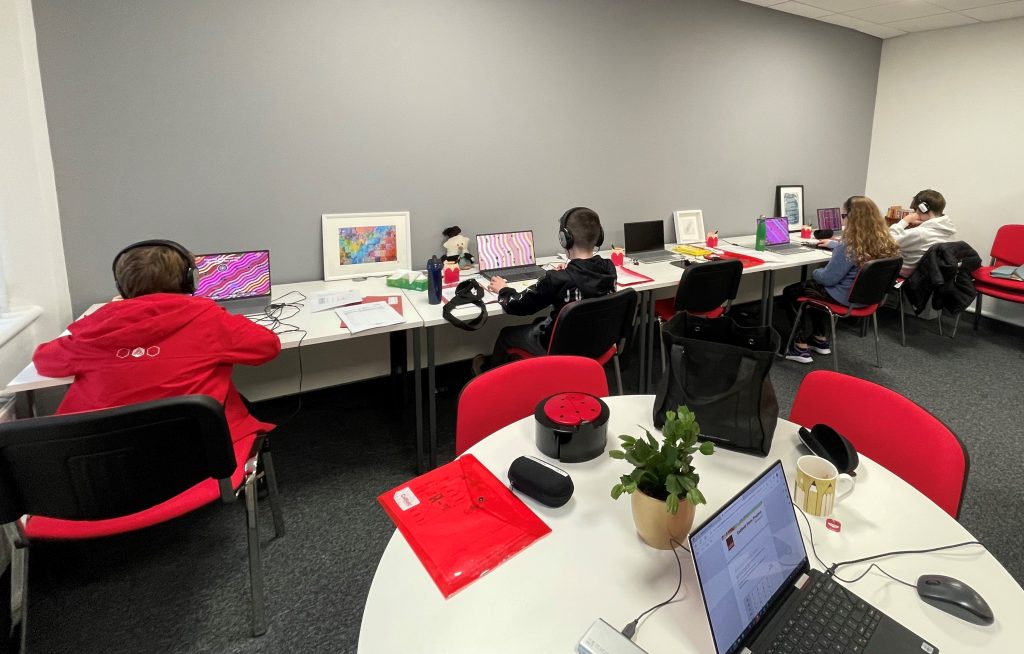
Cellfield helps people to improve their reading skills. We spoke to Fiona Macdiarmid who owns and runs the Cellfield Centre in Stirling.
How did Cellfield start?
It began in Australia, in the late 90s. It was invented by a clever man called Dimitri Caplygin. He was an engineer, and he wondered why so many people still had problems with reading, even when so much had been done to look into and help the issue. So he looked at all the research, and used it to create a computer program.
How does it work?
To be able to read, your brain needs to be able to do lots of different things at the same time. The technical terms are things like “auditory processing”, “visual processing”, “motor function”, “working memory” and “executive function”, but basically it means that your brain has to work in lots of different ways at once.
The program brings together all of those different things, and helps you to get better at each of them, so that they all work together well. That means that your reading skills improve very quickly.

Above: Cellfield Centre in Stirling
How long does the course take?
To start with I’ll talk to the person and discuss exactly what they want help with. That takes about 2 hours, and includes some simple testing to find out how well the person can read. I also tell them how the program works. If they decide they want to go ahead, it is quite a lot of work: about an hour or an hour and a half each day, for 10 days.
After that, we look at how much progress they have made. We then check in with them again 6 months later.
How much better can people get in 10 days?
It depends on a lot of things. But some people improve their reading a little. Others improve it by a huge amount. It’s amazing. I have been working in education for 35 years, and I have never seen anything like it.
A great example is the very first person I worked with using the Cellfield program. He was very smart, and I had already been working with him, using other teaching methods, for 18 months and getting nowhere. I used to say, “If I could just get inside your head and rewire it, we would be onto a winner.” And that is pretty much what the Cellfield program does.

Above: inside the Cellfield Centre
Can you work with anyone?
Yes. I have worked with people who really cannot read at all. I also work with people who can read but find it difficult to remember what they have read.
Are there lots of other Cellfield organisations?
Yes, all over the world. As well as the UK there are centres in South Africa, New Zealand, Australia. There are also centres in America and Canada.
How long have you been worked with Cellfield?
Since 2009. I actually went to New Zealand to do my training with Dmitri.
How did you start working with Future Pathways?
Through a client of mine. His mum worked for Future Pathways, and she told Future Pathways about us. And then Cellfield, the Community Brokerage Network and Future Pathways all worked together to help someone who was registered with Future Pathways. Since then, we have worked with one other person so far.
And can it make a big difference to people’s lives?
Yes, a huge difference. The Cellfield program teaches your brain to work better, and that has lots of other benefits other than just reading. It’s like if you work to get better at running. You would also get a bit better at cycling, rowing, and lots of other things.
And also, of course, because being able to read better is really useful in your life.



